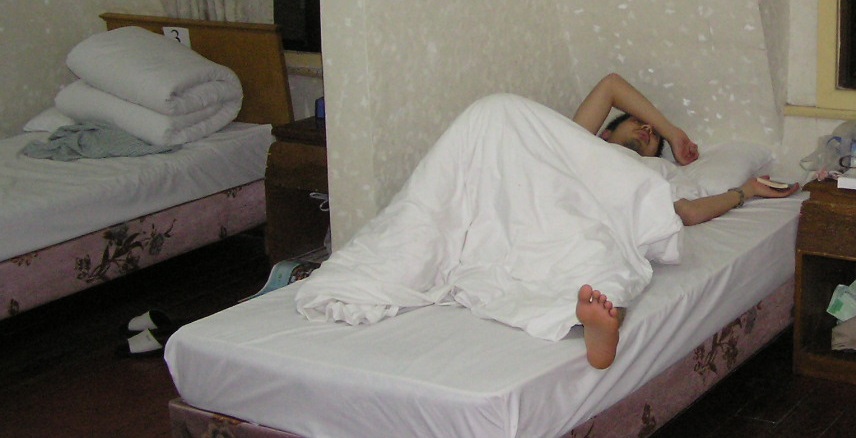Podcast: Play in new window

BOB HIRSHON (host):
The “first-night” effect. I’m Bob Hirshon and this is Science Update.
You’re finally taking your dream vacation and you’ve checked into a fancy hotel room. You climb under the covers of the sumptuous bed…only to toss and turn all night long. According to Brown University researcher Yuka Sasaki, you’re suffering from the incredibly common “first night” effect.
YUKA SASAKI (Brown University):
When people try to sleep for the very first time in a new place, they take longer time to fall asleep and and they may wake up more often.
HIRSHON:
Sasaki and her team report in Current Biology that during the first night volunteers spent in a sleep lab, one hemisphere of their brains stayed on high alert while the other rested. She says being overly vigilant in new situations probably helped our ancestors survive, but figuring out how to calm that side of the brain could help today’s travelers get more restful shut-eye. I’m Bob Hirshon, for AAAS, the science society.
